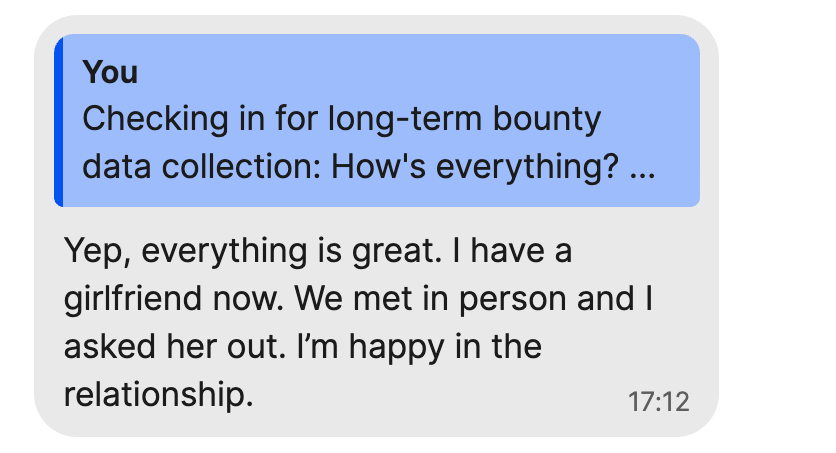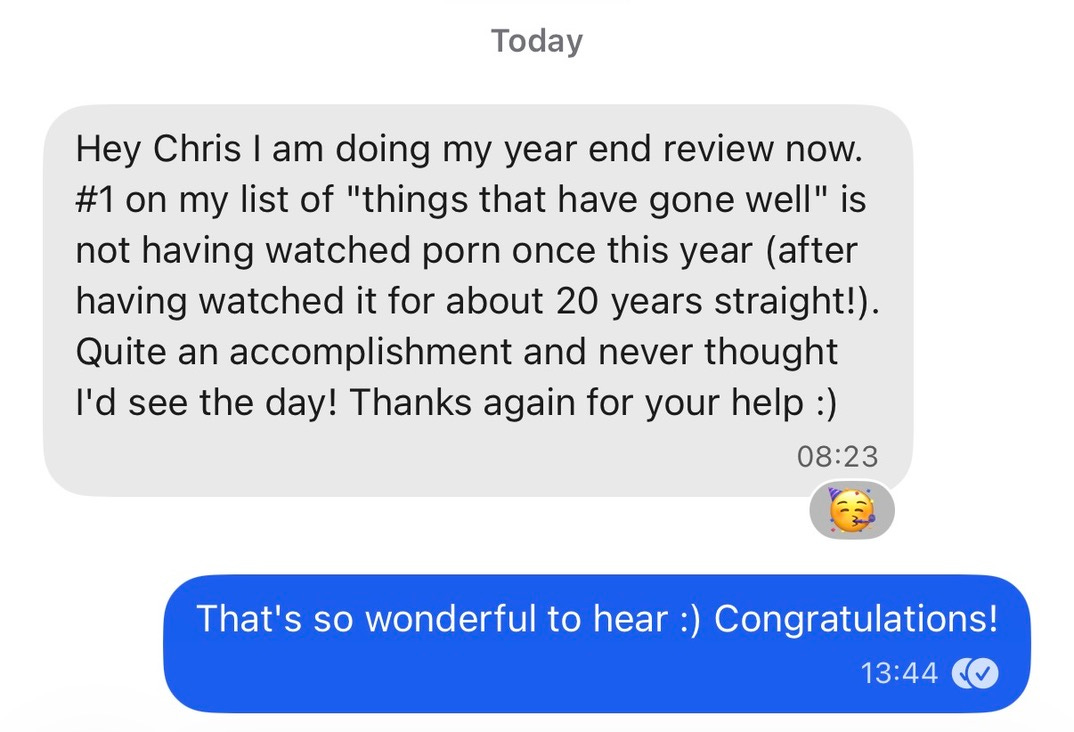Unlearning one-shots, >1 year later
People can grow quick when they’re ripe for it.
A → Organizes ridiculous social projects
An engineer I met at a prediction market conference set a bounty on increasing his social and career agency.
One session; he did the take-home work.
Within a month, he was:
Dancing weekly
Choosing more difficult projects at work
Embracing social interactions that used to be triggering
Expressing romantic feelings frankly
I’m choosing to work on problems beyond my capabilities, and get excited about situations where my weaknesses are repeatedly on display.
He continued the work.
6 months:
Every week I’ve had some new ridiculous, fun, stupid project that I had others rallied around. It's exactly the stuff I kind of pictured doing but never really did…
One of my new friends said, “You're so adventurous.” That shocked me
18 months: He says he’s very happy and resilient, has lots of friends (and dates) now :)
B → Laughs at triggers
Antoine was the first to try.
Multiple therapists and modalities had fallen short. “I’ve had anxiety my whole life.”
Unlearning with take-home work, plus another call in month nine. So a “two-shot”, I suppose.
11 months:
I used to get triggered by very small things that some of the people surrounding me would say or do… These things would incapacitate me for 48 hours, I would have to shut myself in my room. Now I just laugh. —Video
18 months: He says all is well, he has continued the practice.
C → Asks women out
AI founder never asked out women he was attracted to. 100s of hours of IFS therapy and meditation didn’t do it for him.
After he started asking people out, we did more unlearning for further goals.
5 months after first unlearning, we recorded this reflection.
At 11 months he texted:
D → Zero urges
A man man set a bounty on his 20-year porn addiction. He had tried to quit for most of that time.
One session, a little take-home work.
1 month:
“very few urges”
7 months:
“I don’t have the urge at all anymore”
13 months:
Pattern noticed
Less unlearning is necessary when the emotions involved are directly accessible. Avoidance patterns, like numbness and some forms of procrastination, have been less amenable to one-shots with take-home work.
The end of one-shots
I saw got the data I wanted; one-shot research has concluded.
Now researching: maximum unlearning.



![[Text message conversation. Question: "What did you try before working with me?" Response: "8 years of talk therapy. 1 year of actively seeking exposure to scary situations. This helped, but working with you once accelerated this immensely, like 4 years of exposure in 4 hours."] [Text message conversation. Question: "What did you try before working with me?" Response: "8 years of talk therapy. 1 year of actively seeking exposure to scary situations. This helped, but working with you once accelerated this immensely, like 4 years of exposure in 4 hours."]](https://substackcdn.com/image/fetch/$s_!WIoB!,w_1456,c_limit,f_auto,q_auto:good,fl_progressive:steep/https%3A%2F%2Fsubstack-post-media.s3.amazonaws.com%2Fpublic%2Fimages%2Fece2fecf-26e7-4eeb-9fca-04bed4cdc7dc_1125x645.jpeg)




I’ve had some “one-off” successes like this too (sometimes in as little as 30 minutes, though this was in an environment where we had a lot of shared context). A lot of your intuitions about this match mine, and I hadn’t actually made the “anxious vs avoidant” heuristic explicit to myself until I read your account of it, so thank you! Also love the “bounty” idea, and will think about how I might be able to implement it in my own practice.
I'm super curious, I've reread a bunch of your pieces. whaty do tou do in these sessiosn?